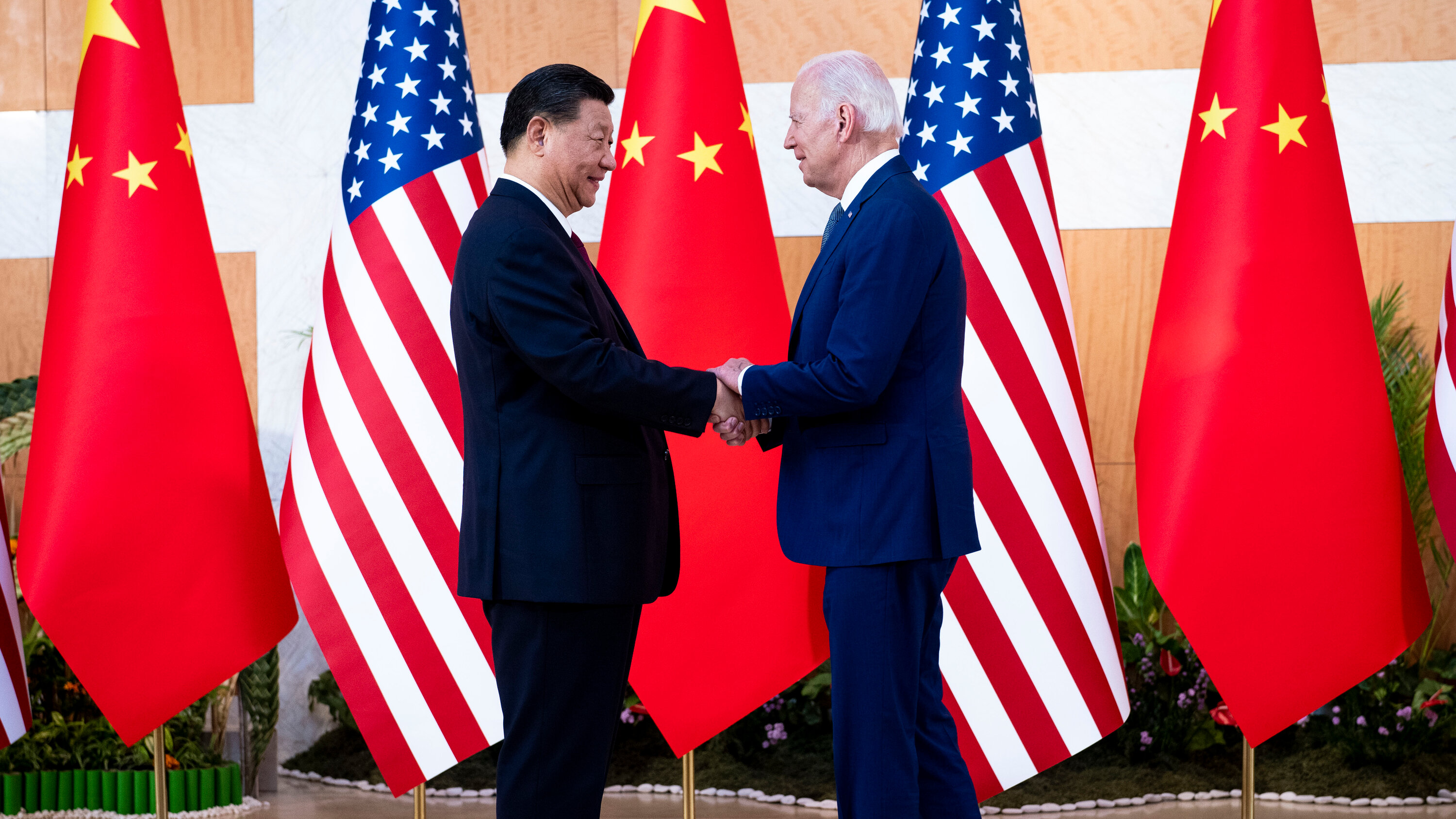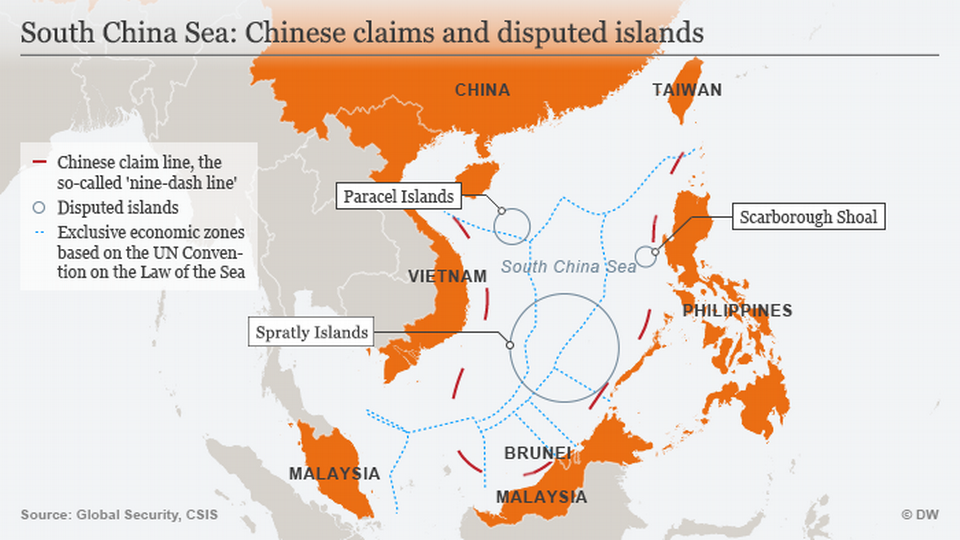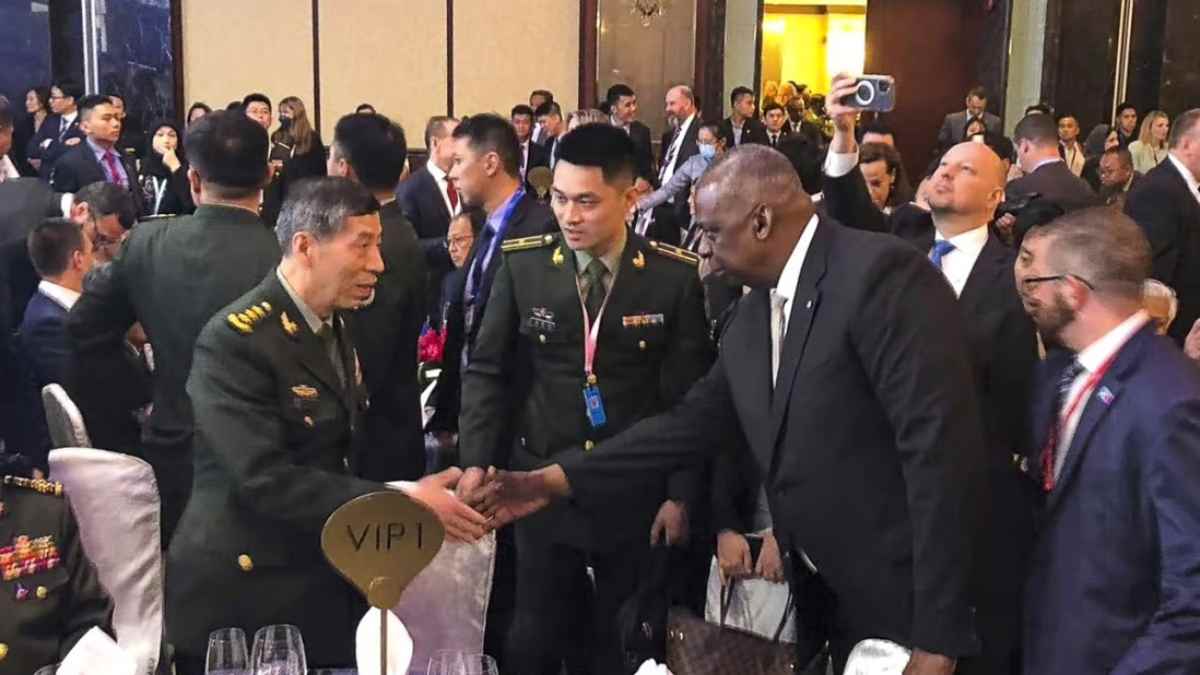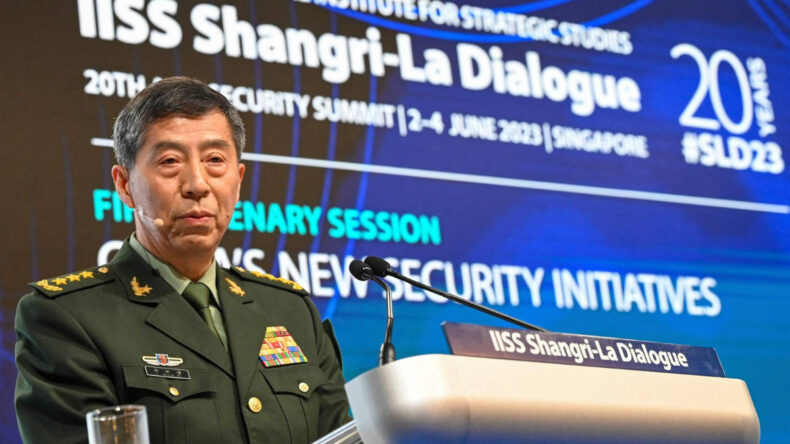Chinese Defence Minister Li Shangfu spoke at Shangri-La Summit calling upon the US to engage in dialogue and not confrontation, asserting that conflict with the US would be ‘an unbearable disaster’.
During Asia’s leading security summit, Chinese Defence Minister Li Shangfu expressed his view that engaging in conflict with the United States would result in an “unbearable disaster.” Instead, he emphasized China’s preference for dialogue rather than confrontation. Delivering his speech at the Shangri-La Dialogue in Singapore, Li said that the world has ample space for both China and the United States to co-exist and prosper in harmony. These remarks come days after Li had declined a direct meeting with his U.S. counterpart Lloyd Austin.
In his first major international address since assuming the role of China’s Minister of National Defense in March, Li Shangfu acknowledged the differences between China and the United States, including their distinct institutions and systems.
However, he emphasized the importance of finding common ground and shared interests to foster the growth of bilateral relations and enhance cooperation between the two nations.
Addressing the audience at Shangri-La Dialogue in Singapore, Li highlighted that a severe conflict or confrontation between China and the United States would have dire consequences for the world. It is worth noting that Li donned the uniform of a People’s Liberation Army general, delivering his speech on the 34th anniversary of the 1989 Tiananmen Square crackdown.
Strained US-China ties
Relations between Washington and Beijing have significantly deteriorated due to a variety of contentious issues that determine power relations between the two nations and the world. These include disagreements over Taiwan, which is governed democratically, territorial disputes in the South China Sea, and President Joe Biden’s recent imposition of restrictions on the export of semiconductor chips.

The US-China relationship has transitioned into a new and extended phase characterized by tensions in economic, diplomatic, technological, and military domains. Recent events have highlighted regional concerns, including a statement from the Pentagon regarding an incident in which a Chinese fighter jet engaged in an “unnecessarily aggressive manoeuvre” against an American patrol plane in the South China Sea.
This incident reflects China’s increasingly assertive stance on the global stage under the leadership of President Xi Jinping, particularly concerning its historical claims over Taiwan and the South China Sea.
The South China Sea is a strategically important waterway known for its abundance of resources, such as oil and gas. It has been a source of tension in the Asia-Pacific region for the past decade as China has become more assertive, leveraging its growing economic power to enhance its global influence.
Indirect jibe at the United States
Chinese Defence Minister Li Shangfu. while addressing the Shangri-La Dialogue reiterated well-known grievances and accused “some countries” of exacerbating an arms race and meddling in the internal affairs of other nations. He underscored a growing cold-war mentality that is greatly increasing the security risks of nations and instead said that mutual respect should prevail over bullying and hegemony.

Li also emphasized that China would not tolerate any efforts by Taiwan’s independence groups or external forces to facilitate the separation of Taiwan from China. He expressed his views on the establishment of NATO-like alliances in the Asia-Pacific region and argued that such alliances could lead to the “kidnapping” of regional countries and the amplification of conflicts and confrontations, ultimately plunging the Asia-Pacific into a cycle of disputes and conflicts.
Li reiterated the need for open and inclusive cooperation in today’s Asia-Pacific rather than forming exclusive cliques. He also cautioned against repeating the tragic history of the two world wars and highlighted the importance of preventing such disasters from happening again.
Although Li did not mention any specific country, his statements seemed to allude to the United States, which has been strengthening alliances and partnerships in the region.

While Li and Austin exchanged handshakes at dinner, they did not engage in more extensive discussions, despite the U.S.’s repeated requests for increased military exchanges.













